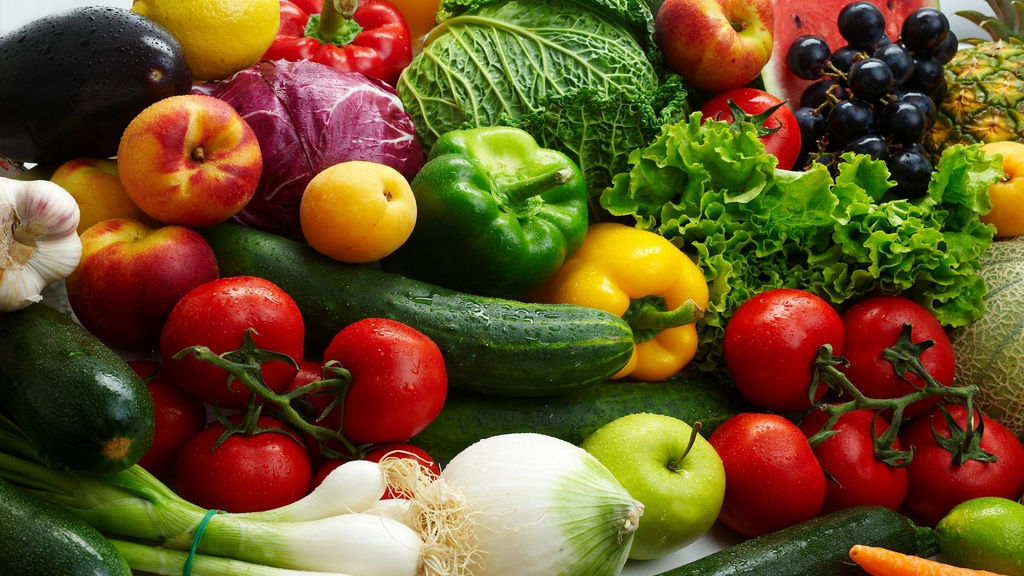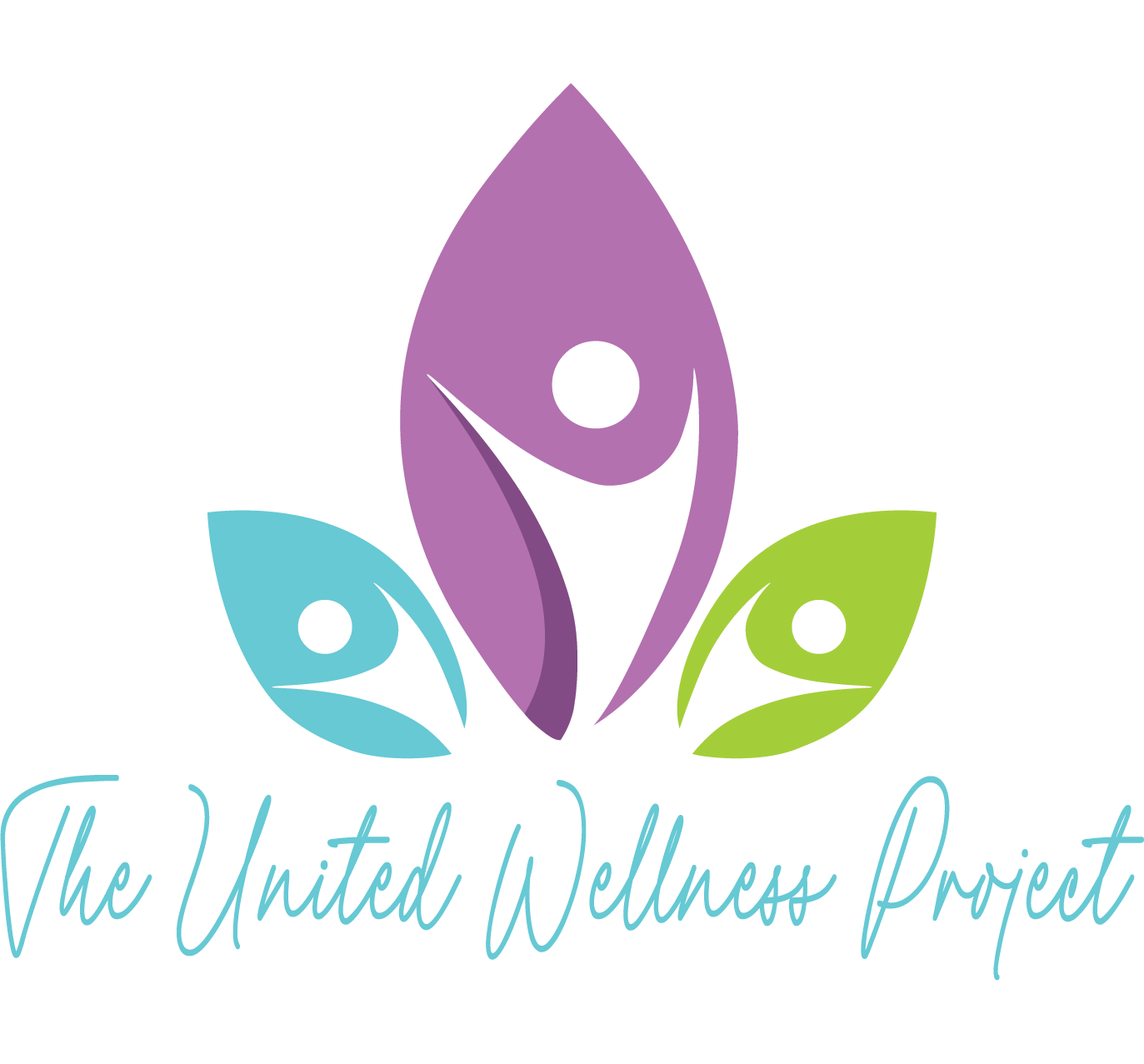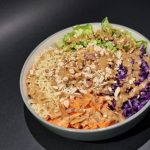
22-09-2023 | Interests
Nutrition plays a key role in our lives, especially among young people. Vegetables, with their nutrients and vitamins, should be an essential part of every young person’s diet. In this text, we will discuss the importance of consuming vegetables in the diet of young people and how it can help them stay healthy and energetic.
Source of vitamins and minerals
Vegetables are a rich source of vitamins and minerals that are necessary for the development and functioning of the body of young people. Some of the most important nutrients found in vegetables include vitamins such as A, C, and K, as well as minerals such as calcium, iron, and potassium. These substances help build a strong immune system, build bones and speed up metabolism.
A source of antioxidants
Vegetables contain antioxidants, such as beta-carotene and lutein, which are crucial in protecting cells from free radicals. These antioxidants prevent cell damage and can reduce the risk of serious diseases, such as cancer and heart disease.
Maintaining body weight
Vegetables, especially those that are low in calories and high in fiber, can help control weight in young adults. They increase the volume of the contents in the stomach, which reduces the appetite for high-calorie foods and meals. This can help young people maintain a healthy weight and reduce the risk of obesity.
Improving digestion
The fiber in vegetables is great for digestive health. They stimulate the peristalsis of the intestines, preventing constipation and other problems with the digestive system. These nutrients improve the absorption of food and prevent the occurrence of digestive problems, i.e. dyspepsia.
Improving cognitive functions
Research shows that vegetables can have a positive impact on cognitive functions in young people. Vegetables rich in vitamins and antioxidants can improve cognition and concentration, which can help students achieve better learning outcomes.
Conclusion
Vegetables should be an indispensable part of the diet of young people, because they provide them with essential nutrients, antioxidants and fiber that are necessary for their health and development. By consuming vegetables with every meal, young people contribute to the preservation of their health in many aspects. Therefore, try to include vegetables at every meal and thus invest in your health.
Ile Kuzmanoski, MD

22-09-2023 | Interests
Iron insufficiency paleness generally disables the oxygen supply to the cells. There are different variables that can influence the seriousness of the manifestations, starting from mellow indications like tiredness and raising to more outrageous ones.
Here is the entire rundown:
- Feeling Extreme Fatigue or potentially Weakness
In case you’re dozing more than expected, aren’t waking as refreshed as you regularly do, or are encountering over all low vitality levels or muscle soft spot for an amplified timeframe, you may require more iron.
- Headache, Dizziness or Light-headedness, Particularly When Standing
When we stand up we normally get head surges, since the oxygen stream to the mind is interfered. This is the thing that really triggers migraines and tipsiness, and can even prompt blacking out.
- Shortness of Breath
Only basic stair climbing can bring about unpredictable breathing, so you might need to swing to some cardio.
- Suffering From Frequent Infections
If you have wounds that set aside a long opportunity to recuperate, or cuts that get effortlessly contaminated, you may experience the ill effects of low hemoglobin levels and ought to raise your iron levels.
- Cold Hands and Feet
Is it true that you are tired of individuals continually shouting “Your hands/feet are so frosty!”? Dissemination issues influence your digits to start with, so if your fingers and toes are continually cold, or your nails turn purple, more iron, not more layers, may do the trap.
- Weak, Brittle Nails
The nails can be a gigantic pointer of iron insufficiency in your living being. Should you encounter issues with delicate nails or now and then hair, adjust for lost iron.
- Increased Heartbeat
The pulse is regularly identified with iron deficiency, and on the off chance that you are deficient with regards to oxygen, you may encounter heart beating speedier than normal.
- Unusual And Odd Cravings
The body creates desires when it needs something. Regularly it is sugar desires, yet in the event that you are encountering serious requirements of it and once in a while considerably more interesting longings like non-nourishment things, for example, chalk or soil, you may need press in your framework.
- Restless Leg Syndrome
This is really a genuine condition, and in the event that you have encountered unsettling and a shivering sensation in your leg that won’t appear to leave now you know the explanation for it.
- Suffering from Chest Pain
This is an indication that must never be disregarded. It can mean and iron inadequacy sickliness, as well as heart failure too so regard it as fast as could be expected under the circumstances.
What Can You Do?
- Make a point to fuse a solid eating routine and to expend gainful items.
- Incorporate sustenance’s, for example, meat, eggs, verdant greens or iron-strengthened oats, breads or drain, will expand the iron level in your living being and enhance your well-being.
- You can likewise take press supplements and take care of business that way. Try to make a physical checkup before taking anything iron-related all alone.
Be that as it may, be aware of the indications too, and respond on time.

08-05-2023 | Interests
Sugar and its role in our diet have become a controversial topic. Excessive sugar consumption can lead to problems such as tooth decay, obesity, and health complications related to overweight and obesity. Limiting or avoiding foods with a high amount of added sugar such as sweets, cakes, soft drinks, etc. is the best way to control intake. Since our body is made to like bland food, and natural sugars are high in calories, today the use of artificial sweeteners in the diet is more and more attractive. But what are artificial sweeteners?
Sweeteners are substances that are many times sweeter than sucrose, which is ordinary table sugar and a type of sugar substitute. The sweetness sensation caused by these substances is sometimes significantly different from sucrose, this can be seen in soft drinks or sweet teas that are labeled as “diet” or “light” which contain artificial sweeteners and often have a significantly different mouthfeel. Due to their intensity of sweetness, they are used in small quantities and therefore the food in which they are used is less caloric.
Sweeteners must be approved by the Food and Drug Administration (FDA) and must be proven safe. Six high-intensity sugar substitutes are approved for use: aspartame, sucralose, neotame, acesulfame potassium (Ace-K), saccharin, and advantame, and two high-intensity sweeteners obtained from plants: steviol glycosides obtained from stevia leaves ( Stevia rebaudiana) and extracts of Siraitia grosvenorii, also called luo han guo or monk fruit. Some plant-based sugar substitutes are known, including sorbitol, xylitol, and lactitol.
Nutritive sweeteners are considered nutritious substitutes for sugar because they provide calories when consumed. Such are sugar alcohols and they provide fewer calories than natural sugars because they are not fully absorbed by our body. For this reason, a high intake of foods containing some sugar alcohols can lead to gas and diarrhea. Any food containing sorbitol or mannitol must carry a warning on its label that “excessive consumption may have a laxative effect.”
Non-nutritive sweeteners (saccharin, aspartame, acesulfame potassium, sucralose, and neotame) are artificial sweeteners that were actually chemicals that were developed for another purpose until a researcher tasted them and found them to be sweet. They are found in so many products that people can consume them without even knowing it. There is a division in the medical community, those who are for or those who are against their use because the facts about the safety of these artificial sweeteners are still not clear enough. Although for many years there have been studies that say that there are certain risks when consuming artificial sweeteners, it has not yet been proven whether they are big enough to ban their use. For example, it has been proven that there is a possibility that saccharin can cause allergic reactions in people who cannot tolerate sulfa drugs. Reactions may include headaches, difficulty breathing, skin rashes, and diarrhea. Saccharin is also believed to be found in some baby formulas and can cause irritability and muscle dysfunction. For these reasons, many people still believe that the use of saccharin should be limited to infants, children, and pregnant women. Aspartame, one of the most controversial artificial sweeteners, poses a risk to people with the rare genetic disorder phenylketonuria and to people who suffer from depression. It is difficult to determine whether there would be long-term health problems if you consume artificial sweeteners during pregnancy or during childhood. None of the manufacturers are saying you can’t consume them, but none of them have long-term studies that prove it’s safe to do so.
Acceptable Daily Intakes are defined for each non-nutritive sweetener and we cannot ingest unlimited amounts of these additives. If you think you are experiencing a symptom when consuming a nutritional or non-nutritive sweetener, then eliminating it from your diet is the best way to determine if this is the case. Sweeteners are not essential nutrients in our diet and therefore exist to nurture our sweet tooth, not our bodies.
M.Sc Emilia Gjorgieva,
Master of Chemical Sciences

15-03-2023 | Interests
Iron is an essential component of hemoglobin, myoglobin, and a cofactor of a few enzymes, it treats iron-deficiency anemia, and stimulates the bone marrow synthesis.
Iron also eases menstrual symptoms and increases the strength of the immune system.
An increase of iron intake is recommended in women during their reproductive period, pregnant people, people that breastfeed, people older than 55 years of age, alcohol users, athletes, people that do physical labor, people that lose blood from varying reasons (ex. Menstrual cycle, internal bleeding), vegetarians, and so on.
Symptoms of iron deficiency include tiredness, irritability, pale spots on skin, reduced learning ability along with reduced mental capacities.
Symptoms of iron poisoning by taking too much, include bloody diarrhea, dizziness, stomach pain, vomiting with traces of blood, weakness, collapsing, weak and increased heartbeat.
Very high iron intake may lead to an increased risk of cancer and cardiac disease.
Natural sources of iron are egg yolk, fish, meat, lentils, whole grains, shells, and beans. Coco is also rich in iron, as is the green leafy vegetables. As good iron sources, millet and sesame are worth mentioning.
Only 25 grams of iron are enough for satiating the daily need. Sesame seeds are the healing gift of nature both because of its iron content and the richness with calcium.
Only 100 grams of sesame seeds contain up to seven times calcium as compared to 100ml of milk. The beneficial effect of sesame seeds is also seen in its ability to detoxify and regulate metabolism. Because of its high levels of iron, millet is considered to be a natural ingredient that helps regulate the blood parameters. Only 100 grams of millet contains 9mg of iron. Apart from positively affecting the iron levels, millet is also used in patients with cardiovascular problems, gastrointestinal issues, and kidney issues, more specifically in patients that have water retention, specifically in pregnant people.
Written by:
Aleksandra Prendzova
Nutritionist and food technologist
PZU Srce

15-03-2023 | Interests
Are you one of those who get sick often? Are you worried that colds and other infectious diseases of the upper respiratory tract last forever and bother you more than they should? It is true that our immunity weakens over the years, which is why older people do not respond to vaccines as well as young people, thus, viral infections can be fatal for them. But regardless of age, boosting your immunity is in your power. Even a small deficiency of key micronutrients, such as zinc, selenium and iron, can weaken the body’s ability to defend itself against disease and infection. It is enough to fill your plate with colorful plant foods, season your meals with more garlic and reduce the intake of fats and sweet foods that work against you.
What to eat?
Protein-rich foods that make up many key cells of the immune system, such as antibodies and white blood cells that find and destroy microbes and carcinogenic cells. Protein foods contain a lot of zinc, iron and B-complex vitamins, which are important for boosting immunity. The typical Western diet is not devoid of protein, but older people and vegetarians must make an effort to get enough of it. If you eat meat, avoid fatty burgers and fried meat and eat lean beef and skinless chicken. Saturated fats and fried foods everywhere in the body cause low-intensity inflammation, which over time can deplete the immune system’s resources.
Also, sardines not only contain lean protein but also contain anti-inflammatory essential omega 3 fatty acids, as well as solid amounts of zinc and selenium.
Pumpkin seeds – about 125 g of pumpkin seeds contain 6 mg of zinc, one of the most important nutrients for the immune system. Research has shown that people deficient in zinc recover more slowly from infectious diseases.
(the recommended daily amount of zinc is 14 mg for men and about 8 mg for women, but if you get sick often, you should take 25 mg daily). Dark turkey meat and beef are also good sources of zinc, and six oysters have as much as 40 mg of zinc.
Brazil nut – this nut is the best natural source of the antioxidant mineral selenium, which boosts immunity. When we don’t have enough selenium, our white blood cells are slower to kill germs and cancer cells. Each Brazil nut contains 75-100 μg of selenium, so it is enough to eat 1-2 a day, because the daily recommended amount of selenium is relatively small. Selenium is also found in salmon, crabs and shrimps.
Garlic is a friend of the immune system, especially when eaten fresh. It is an edible antibiotic with a strong antibacterial and antiviral effect. Its sulfur compounds contain surprisingly many antioxidants. Chop or crush the garlic and let it sit for 10-15 minutes to fully release its healing compounds.
Colorful fruits and vegetables – fruits and vegetables with bright colors are a rich source of antioxidant substances that our body needs in large quantities when we are sick or under stress. Stress and illness encourage the creation of molecules known as free radicals that damage cells. These molecules can damage the thymus, in which many immune system cells are created.
What is true for the thymus is also true for the entire immune system. When the thymus is damaged, we become more susceptible to infectious diseases, which leads to the creation of more free radicals. Antioxidants help us break this cycle. Increased consumption of fruits and vegetables is an easy way to provide our body with a sufficient amount of antioxidants in a natural way. But don’t limit yourself to apples and oranges because the flavonoids in grapes and the carotenoids in carrots and sweet potatoes are some of the most powerful antioxidants, and berries are the fruits with the most antioxidants of all fruits. A minimum of 5 servings of fruits and vegetables is recommended during the day.
BioCosmos

15-03-2023 | Interests
Water is a source of life. It is an integral part of the body and represents 70% of the total body weight.
How much water should we consume per day?
The amount of water we should drink depends on several factors: physical activity, body weight, climate factors, etc. On average, adults should consume 1.5–2.5 l per day . Water needs children have depend on the age of the child, loss of water through the skin and lungs, the clinical condition of the child (diarrhea, vomiting..) and microclimatic conditions (temperature, humidity)
| Body weight |
Water intake |
| 36kg |
1.2l |
| 45kg |
1.5l |
| 54kg |
1.7l |
| 63kg |
2l |
| 72kg |
2.3l |
| 81kg |
2.6l |
| 90kg |
3l |
| 99kg |
3.3l |
| 108kg |
3.5l |
| 117kg |
3.8l |
| 126kg |
4.2l |
| 134kg |
4.5l |
| 145kg |
4.7l |
What if we don’t consume enough water?
If we do not consume enough water symptoms like strong thirst , dry mucus of the mouth appear, the tongue becomes dry and coated. Due to reduced intake of water and fluids, blood pressure may decrease. Urine excretion also decreases , it becomes darker and more concentrated.
What is dehydration?
Dehydration is a condition in which greater loss than fluid intake happens. In addition to fluid loss, a loss of electrolytes occurs as well, resulting in a violation of the correct distribution of liquids, i.e. compression of all metabolic processes.
What are the conditions that lead to dehydration?
- Febrile conditions, i.e. conditions with fever. If the gastrointestinal tract gets affected, i.e. we have vomiting and diarrhea, the higher the risk of dehydration becomes.
- Intense sweating – occurs in greater physical exertion or exposure to extreme weather and temperature conditions
- Abundant urination
- Diseases in which there is a higher loss of electrolytes and fluids, such as cystic fibrosis, celiac disease.
- Parasitic infections – accompanied by vomiting and diarrhea
How do we prevent dehydration?
Dehydration can be prevented by sufficient intake of water and fluids.
What can we conclude – why is water important to our body?
Water in the body is essential for electrolyte balance, body temperature regulation, normal functioning of the digestive system, improved toxins elimination. The skin needs water to look youthful and healthy. Good hydration is key to better sleep and concentration.
Irena Dimitrovska, MD













